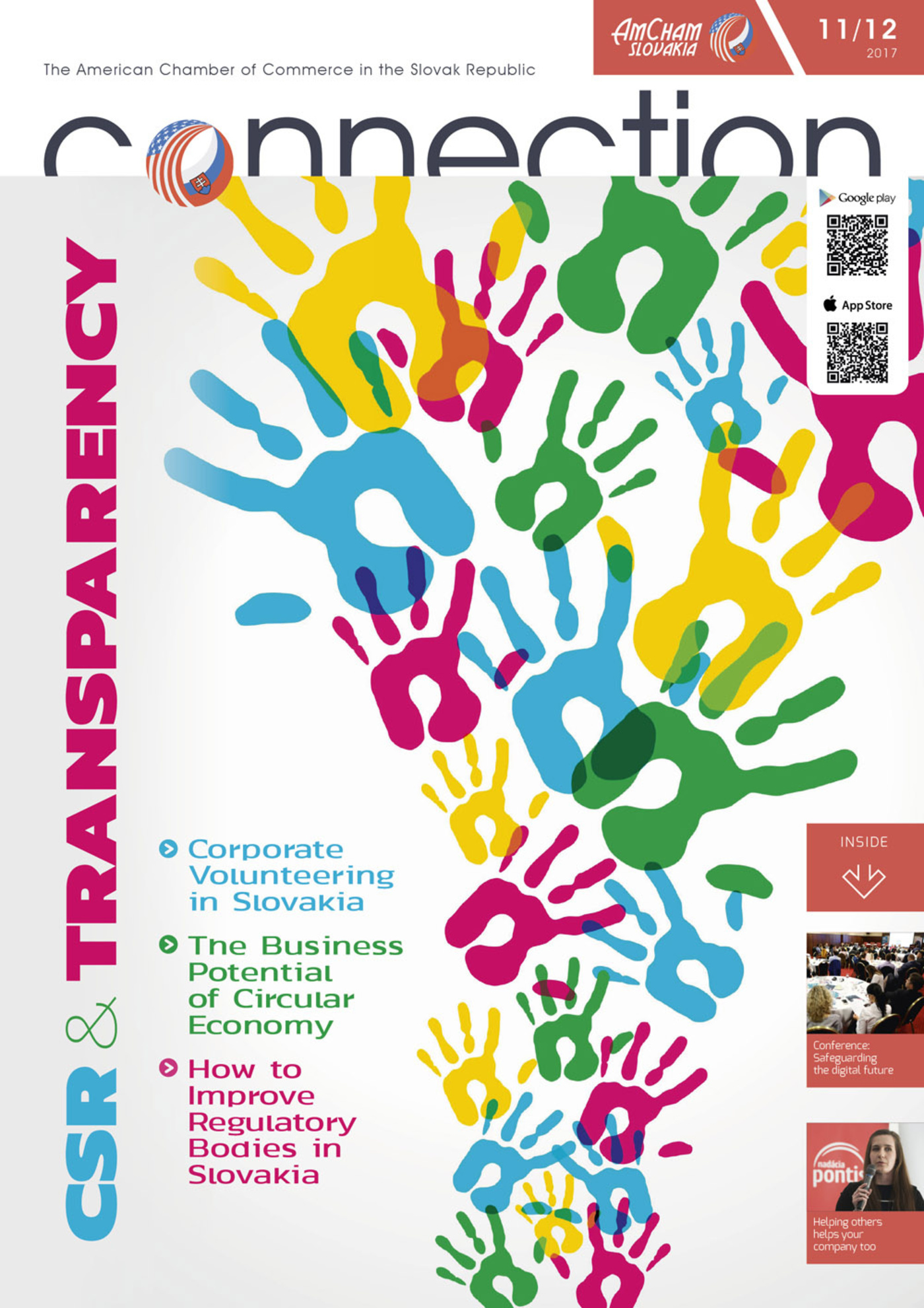What does the business community need?
Both foreign and local companies doing business in Slovakia need a stable and predictable business environment. Regulatory institutions play a very important role for the business community, especially in setting the rules and making decisions that often have long-term effects on individual industries as well as the whole business environment.
Businesses in Slovakia need regulatory institutions that are truly independent. Even though the reality often shows us otherwise, in the ideal world that we should always strive for, regulatory institutions should not be susceptible to political pressure. Their decision-making should be based on objective facts that are published and verifiable, not on political decisions. Companies, whether Slovak or international, need predictability in order to be successful in their respective industries and improve the competitiveness of Slovakia.
While being responsible for oversight of regulated industries or financial flows worth billions of euros, transparency is a key feature in the business community as well as the general public rightly expect. This starts from the selection process of their leadership to daily management as well as decision-making processes. All the relevant stakeholders should be informed in advance about how decisions are made and clear and transparent communication channels should be ensured.
Moreover, it is crucial for regulatory institutions to maintain their expertise. This means having enough expert personnel in respective fields of activity and active cooperation with experts from the external environment, including the business community, academia or the NGO sector. Regulation always follows innovation. As innovation is not limited by borders and many industries are rapidly changing their trends and nature on the global level, it is important for regulatory institutions to actively monitor regional and global regulatory trends and enhance cross-border cooperation with their partner institutions abroad.
Most importantly, for Slovakia to become more competitive as an economy and a country as such, there needs to be trust and dialogue between the business community and the public institutions. Regulatory institutions can be an important tool in promoting this trust and dialogue, if they are truly expert, transparent and independent.
Reality check
In this sense, 2017 has been a very important year as several regulatory institutions, including the Public Procurement Office (ÚVO) or the Regulatory Office for Network Industries (ÚRSO) have changed their leadership. In addition, important personnel changes have also been made in the appellate bodies of these institutions – the Council of the Public Procurement Office (Rada ÚVO) and the Regulatory Council (Regulačná rada). However, it is important to openly ask: have these changes been done in a transparent way? Have they contributed to more independent and predictable regulatory institutions?
AmCham, in cooperation with many of its partners in the Rule of Law Initiative, played an active role in promoting these principles during the selection process of leaders or members of the above mentioned regulatory institutions (ÚVO, ÚRSO, Rada ÚVO, Regulačná rada). Our experience during the past couple of months resulted in several recommendations on how to improve the selection process of the leadership of regulatory institutions in Slovakia.
How can the selection process be improved?
1: Transparency
Goal: Unification of the selection process for various regulatory institutions
Recommendation:
- Unify the standard features of a selection process in a general legal norm (e.g. Civil Service Act)
- Important features of the selection process such as public hearing, role of an expert committee, minimal time line, scope of publishable information about candidates, evaluation criteria for candidates, etc. will be set as basic standards for all regulatory institutions
2: Independence
Goal: Elimination of political influence to the maximal possible extent
Recommendation:
- Strengthening the role of the National Council (NR SR) in the selection process including transfer of many competencies from the government level
- Constitutional majority (90 votes) needed for a candidate to be approved by the National Council, leading to the need for a wider agreement between political parties
3: Expertise
Goal: Inclusion of relevant experts in the selection process
Recommendation:
- Mandatory establishment of an expert committee in the selection process. It should include all of the stakeholders relevant for the specific regulatory institution (defined by relevant legislative norm),
- It will be also eligible to conduct public hearings with candidates as well as prepare preliminary evaluation (to be disclosed publicly) based on objective criteria set at the beginning of the process.
- While such a preliminary evaluation will not be legally binding and the final vote will still be the responsibility of the National Council, it should create enough public pressure to ensure expertise will be a key factor in the decision-making process.
We realize that many of these recommendations are ambitious and will require political will. However, if implemented, they can significantly improve transparency, independence and expertise of regulatory institutions which are crucial for a stable and predictable business environment in Slovakia.
Michal Krčméry, Director of Government Affairs, AmCham Slovakia



Follow us